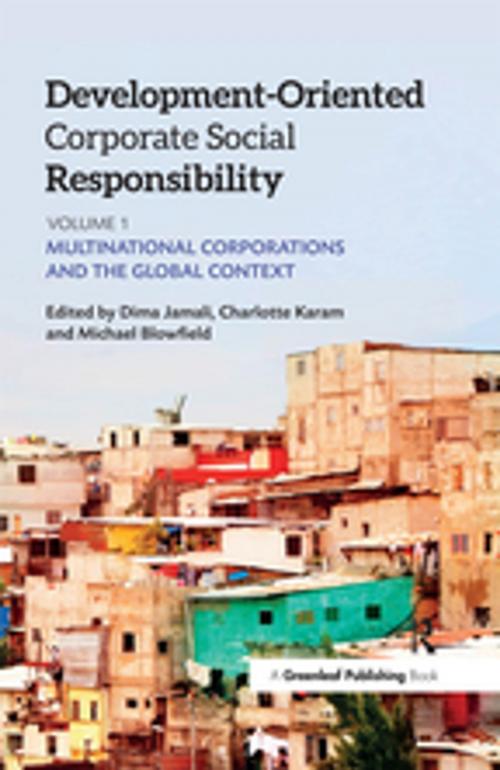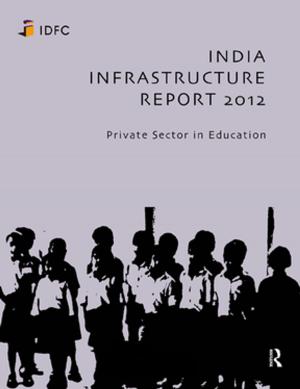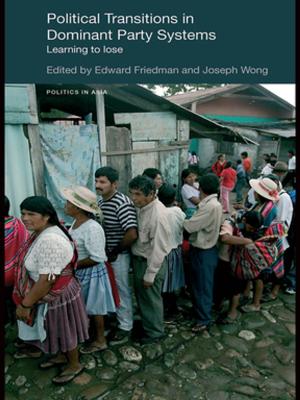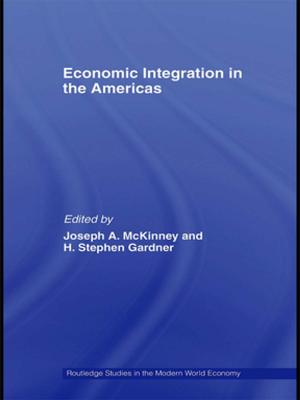Development-Oriented Corporate Social Responsibility: Volume 1
Multinational Corporations and the Global Context
Business & Finance, Management & Leadership, Management Science, Business Reference, Business Ethics| Author: | ISBN: | 9781351285544 | |
| Publisher: | Taylor and Francis | Publication: | September 8, 2017 |
| Imprint: | Routledge | Language: | English |
| Author: | |
| ISBN: | 9781351285544 |
| Publisher: | Taylor and Francis |
| Publication: | September 8, 2017 |
| Imprint: | Routledge |
| Language: | English |
Globalization and the professionalization of Corporate Social Responsibility (CSR) have led to a surge of CSR activities claiming to support development across the globe. In this two volume series, the chapters explore this claim through nuanced debate about the potentialities, limitations and threats of development-oriented CSR in the developing world at both the global and local levels. Volume 1 explores whether there is a genuine possibility for corporations to contribute to development through CSR activities. With corporate reach spreading into every corner of the globe, this is a timely contribution presenting cases from developing countries spanning multiple continents. It explores the multi-level and multi-stakeholder dynamics involved in shaping the complex interface between multinational corporations (MNCs) and possibilities for CSR-related development. The chapters highlight the potential for MNCs to spread best practice and complement the role of governments in bridging governance gaps and spearheading capacity building efforts. But they also highlights serious reservations, stemming from isolated assessments, limited appreciation of the complexities of context, and the permeation of a northern agenda that marginalizes local voices.Within the larger debate on the merits and evils of globalization, this volume captures the mixed record of MNCs in promoting effective development in those parts of the world where it is most needed. This important series will be the reference source for academics, practitioners, policy-makers and NGOs involved in development-oriented CSR.
Globalization and the professionalization of Corporate Social Responsibility (CSR) have led to a surge of CSR activities claiming to support development across the globe. In this two volume series, the chapters explore this claim through nuanced debate about the potentialities, limitations and threats of development-oriented CSR in the developing world at both the global and local levels. Volume 1 explores whether there is a genuine possibility for corporations to contribute to development through CSR activities. With corporate reach spreading into every corner of the globe, this is a timely contribution presenting cases from developing countries spanning multiple continents. It explores the multi-level and multi-stakeholder dynamics involved in shaping the complex interface between multinational corporations (MNCs) and possibilities for CSR-related development. The chapters highlight the potential for MNCs to spread best practice and complement the role of governments in bridging governance gaps and spearheading capacity building efforts. But they also highlights serious reservations, stemming from isolated assessments, limited appreciation of the complexities of context, and the permeation of a northern agenda that marginalizes local voices.Within the larger debate on the merits and evils of globalization, this volume captures the mixed record of MNCs in promoting effective development in those parts of the world where it is most needed. This important series will be the reference source for academics, practitioners, policy-makers and NGOs involved in development-oriented CSR.















